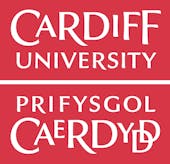PhD Candidate in Entomology, Cardiff University
I'm an entomologist using DNA metabarcoding techniques to reveal how invasive ants fit into ecological communities. We can use these powerful molecular methods as tools to inform conservation and show fundamental ecological and evolutionary principles working in reality.
Though I've studied and worked on many different invertebrate groups, I specialise in ants. These social insects are integral to tropical ecosystems, have a vast diversity of forms, and the most complex societies of any organism other than humans. Not only that, but they fulfill a myriad of different ecological roles, from soil-movers, to predators, parasites, granivores and fungus-farmers.
Experience
-
2018–2023PhD student, Cardiff University
-
2023–2023Entomologist, Durrell Wildlife Conservation Trust
Education
-
2023Cardiff University, PhD
-
2017Harper Adams University, MSc Entomology
-
2016Bangor University, BSc Zoology
Publications
-
2023Grand challenges in entomology: priorities for action in the coming decades., Insect Conservation and Diversity
-
2023Non-Native Ants Drive Dramatic Declines in Animal Community Diversity: a Meta-Analysis., Insect Conservation and Diversity
-
2023Temporal variation in spider trophic interactions is explained by the influence of weather on prey communities, web building and prey choice., Ecography
-
2023The predator problem and PCR primers in molecular dietary analysis: swamped or silenced; depth or breadth? , Molecular Ecology Resources
-
2022The complex epistemological challenge of data curation in dietary metabarcoding: Comment on ‘The precautionary principle and dietary DNA metabarcoding: commonly used abundance thresholds change ecological interpretation’ by Littleford-Colquhoun et al.., Molecular Ecology
-
2022Overcoming the pitfalls of merging dietary metabarcoding into ecological networks. , Methods in Ecology and Evolution
-
2022DNA metabarcoding reveals introduced species predominate in the diet of a threatened endemic omnivore, Telfair’s skink (Leiolopisma telfairii)., Ecology and Evolution
-
2021The problem of omnivory: a synthesis on omnivory and DNA metabarcoding., Molecular Ecology
-
2021Density-independent prey choice, taxonomy, life history, and web characteristics determine the diet and biocontrol potential of spiders (Linyphiidae and Lycosidae) in cereal crops., Environmental DNA
-
2021MEDI: Macronutrient Extraction and Determination from Invertebrates, a rapid, cheap and streamlined protocol. , Methods in Ecology and Evolution
-
2020Money spider dietary choice in pre‐and post‐harvest cereal crops using metabarcoding., Ecological Entomology
-
2018Phylogenetic clustering of wingbeat frequency and flight‐associated morphometrics across insect orders., Physiological Entomology
Grants and Contracts
-
2023Describing the invertebrate diversity of Mauritius
- Role:
- Named entomologist
- Funding Source:
- Durrell Wildlife Conservation Trust
-
2019Arks of the 21st Century
- Role:
- Co-investigator, public speaker
- Funding Source:
- Wellcome Trust ISSF3
-
2019Revealing the diet of Telfair's skink
- Role:
- Named researcher
- Funding Source:
- British Herpetological Society
-
2018Alien ants: describing the role of introduced ants on Round Island
- Role:
- PhD awardee
- Funding Source:
- Natural Environment Research Council
Professional Memberships
- Royal Entomological Society
- British Ecological Society
- Website
- @MaximumInsect
- Article Feed
- ORCID
- Joined


